Hip Hop: A Rose Grown Through the Pavement of America
February 22, 2023
Art and the creation of beauty has been at the forefront of the human psyche for thousands of years. Hip-hop is a unique combination of music and poetry but has a negative stigma to it due to hundreds of years of racism in America.
In ancient Africa, griots began the tradition of speaking over beats, telling stories and legends over simple drum patterns. Similarly, in the Caribbean, there was a strong presence of folk artists telling stories over drum beats.
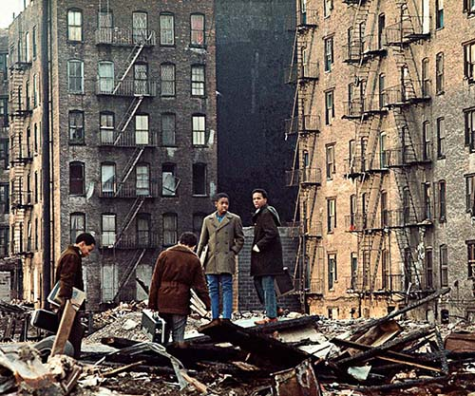
The foundation was laid for the creation of hip-hop long before America was even a concept. In the latter part of the 20th century, the genre would begin to take shape. African-American musicians like Miles Davis, Jimmy Hendrix, Michael Jackson, Aretha Franklin, Prince, Louis Armstrong and James Brown, among others, would blaze a trail, earning the respect and admiration of fans across all creeds.
In the 1970s, The Big Apple was a war zone, crime was rampant, and the city seemed broken. In the midst of all this pain, a new genre emerged. During house parties, local DJs would isolate the breaks of funk and disco songs, interacting with the audience and speaking over the beat, and the rest is history.
Throughout the 80s, we saw Rakim, KRS-One, MC Shan and Ice T, among others, refine and move the genre forward. We saw an increase in lyricism and improved song structure and production with the advent of looping.
As we transition into the 90s, we reach what many would consider the golden age of hip-hop. Artists like Jay-Z, Nas, Mobb Deep, Biggie, Tupac, Outkast, Scarface, A Tribe Called Quest and, at the tail end, Eminem, would take hip-hop international.
This is when the war on hip-hop began. The increasing popularity would bring greater scrutiny to the genre’s subject matter and artists themselves. This scrutiny still persists today, exemplifying the different treatment that minorities and their art endure from the media.
This is similar to the treatment of rock musicians. In 1985, at the height of the Reagan culture wars, then-senator Al Gore’s wife began a federal case after being offended by some Prince lyrics in an album she purchased.
These hearings would become known as the “Rock-Porn Hearings.” It saw a coalition of three rockers, headed by John Denver, battling with congressmen and their spouses under the banner of artistic freedom and expression. The hearings resulted in “questionable” albums receiving warning labels, and funny enough, rap albums ended up being the most labeled, not Heavy-Metal or Rock, though the whole issue was over a Prince album being defended by fellow rock musicians.
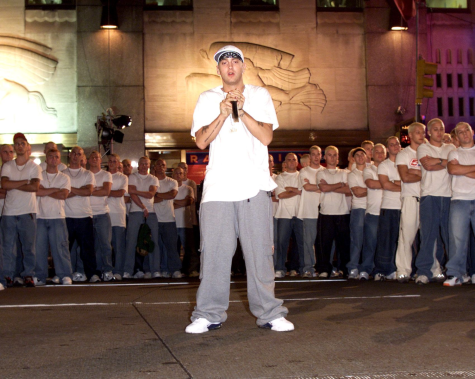
Eminem was a particularly big deal because of his complexion, though the issue is now outdated. His mobilization of the white youth would make rap an even bigger “problem.”
Congress would hold sessions to scrutinize the lyrics of rap songs similar to rock in the 80s, and it became a favorite topic of cable news programs to condemn the music and blame it for the reason for violence in their community.
This was done in the 90s, but there was also a hearing as recently as 2007. Rappers David Banner and Master P appeared before the House Energy and Commerce subcommittee. Master-P apologized to women for his past language, seeing how some could take it as disrespectful. Banner, on the other hand, likened himself to Stephen King, saying he makes “horror music,” also telling Congress if they fixed his neighborhood, maybe he’d be different.
This dialogue continues today as conservative pundits like Ben Shapiro target rap, saying that it isn’t even music. Geraldo Rivera believes that hip-hop has damaged young African-Americans more than racism in recent years. Bill O’Reilly blames rap for Christianity’s decline.

Some of the issues are not even issues but talking points. For example, the decline of Christianity does not mean anything except our exercising religious freedom, but it is a matter that can mobilize a voter base.
Texas Congressman Ronny Jackson, in the wake of the Uvalde shootings, blamed the influence of rap and video games on young people. Antonio Delgado is a black Harvard Law graduate whose opposition in New York’s 19th Congressional district believed his past rap career should disqualify him from holding office, going so far as to call it anti-American.
A rather new development in the matter is the use of RICO charges to take down musicians. Atlanta artist Young Thug and his music label, YSL, were arrested almost in entirety for crimes committed by a minority of the members. The Racketeer-Influenced and Corrupt Organizations (RICO) laws were established to combat the Italian Mafia and organized crime. You don’t have to prove individual guilt, just that the suspect is a member of a group.
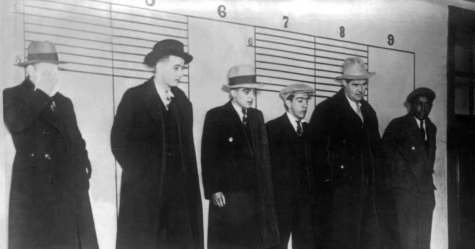
This is entrenching the ability to use lyrics as a basis for prosecution, lyrics which judges and prosecutors frankly do not understand and only care to understand insofar that it results in a conviction. Imagine if a director was arrested because of violence in their films, or a painter for portraying sensitive material.
Law enforcement agencies have already made known the fact that they intend to target more hip-hop artists under these types of charges in the future, opening up a new can of worms.
This has been going on though, just not under the RICO statutes. One of the biggest examples was the rapper Mac, who was signed to Master P’s No Limit label and set to be one of the next big stars.
Mac would be charged with manslaughter after a nightclub shooting in 2001, though there was no physical evidence of his involvement. Witnesses report seeing Mac brandishing a weapon after what sounded like a gunshot in the club. In an effort to prove his innocence, Mac brought the police to his house and showed them his firearm, which was fully loaded and not recently fired. They accused him of having some phantom second gun he got rid of.
During his trial, his lyrics were used against him, specifically a portion in one of his songs where he mentions his dad’s military enlistment and says that his father would kill for him. This was misconstrued during the proceedings and made out to be an example of his own tendency to murder. Following the testimony of five witnesses being thrown out due to their being coerced, Mac was finally allowed to be released in 2021, after serving 21 out of his 30 years, though.

Since the 1990s, hip-hop has been a cultural scapegoat for politicians and the media alike. This allows for the un-inclusion of, say, The War on Drugs, redlining, for profit prisons, income inequality, housing inequality, law enforcement failures and rampant firearms from a discussion on our current societal failings.
And still, in the shadow of all this negativity, hip-hop has grown and is currently one of the most popular genres. This popularity has also allowed the art of the music to be realized.
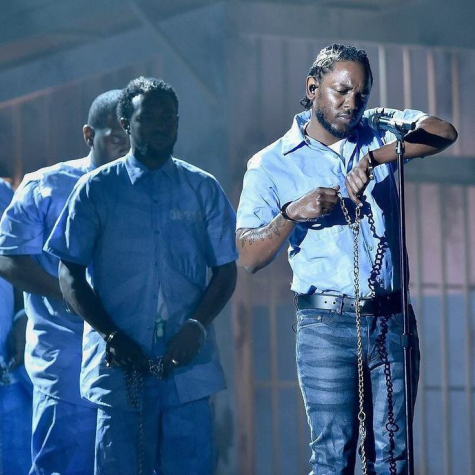
From Tupac’s “Changes” to Kendrick Lamar’s “Alright,” rap has been at the forefront of social issues since its inception. The power in the music is undeniable, giving a voice to those who otherwise would not have one and having the strength to cause change.
One underappreciated aspect of hip-hop is the sheer amount of lyricism that it takes to create a song, let alone a good song. The average rap song has multiple times as many lyrics as the average pop or country song. The ability to incorporate metaphors, social commentary, alliteration and any manner of other literary devices in such a long-form manner while staying on beat is undeniably impressive.
If you look at instrumentation, you also find that most rap songs have more in the actual instrumental than other genres. When you make a rap song, you have to decide on a kick, snare and hi-hat, ensure that all three sound well, make a pattern of that, and then add in other instruments.
You can add in anything; it is the ultimate blank canvas. From piano, guitar and bass to horns to sound effects and even audio clips of speeches or popular media, producers constantly push limits with distortion, reverb, autotune and vocal production. Sampling is another unique aspect that allows for new renditions of classics to be made, paying respect to other genres outside of earlier hip-hop songs as well.
Hip-hop also has a very strong emphasis on making something of oneself, providing for family, looking out for the community, helping your friends and any other manner of positive messaging. People just lose sight of this due to the nature of rap music. It is a depiction of a different way of life. To clean up rap lyrics would be doing a disservice by painting an inaccurate picture. You wouldn’t tell George Strait not to talk about Amarillo.
We don’t watch “Saving Private Ryan” and say, “Wow, this Spielberg fellow sure should’ve toned down the violence.” We don’t go to a football stadium expecting to see a hockey game.
Similarly, you don’t go into hip-hop with the idea that everything is all sunshine and rainbows. Of course, not everything is going to be the most positive. It is stories of pain, hunger, loss and need at its core. It is also just foreign to many; most Americans are not well-versed in the true nature of race relations in America and the problems that came along with the systematic targeting of minorities.
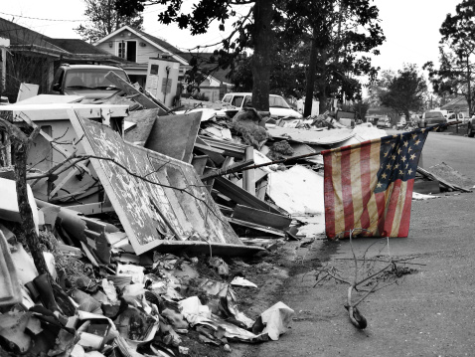
People say we need to move past all of these scars that mar American society, but we can’t move past anything until we understand, empathize and do our best to make things right.
Listening deeper than with the intent to critique someone else’s life and art allows for the realization of the art to occur. It may not be everyone’s cup of tea, but neither is country, rock or pop, yet no one questions the validity of those genres.
Overall, hip-hop has quite a unique spot in American political, social, activist and musical history, pushing America forward at multiple different junctions. From exposing Reagan’s destructive policies to denouncing Bush’s lies to get us into war post-9/11, rap music has shown that speaking truth to power is a real possibility and can be done by those society would not normally lend an ear to.
